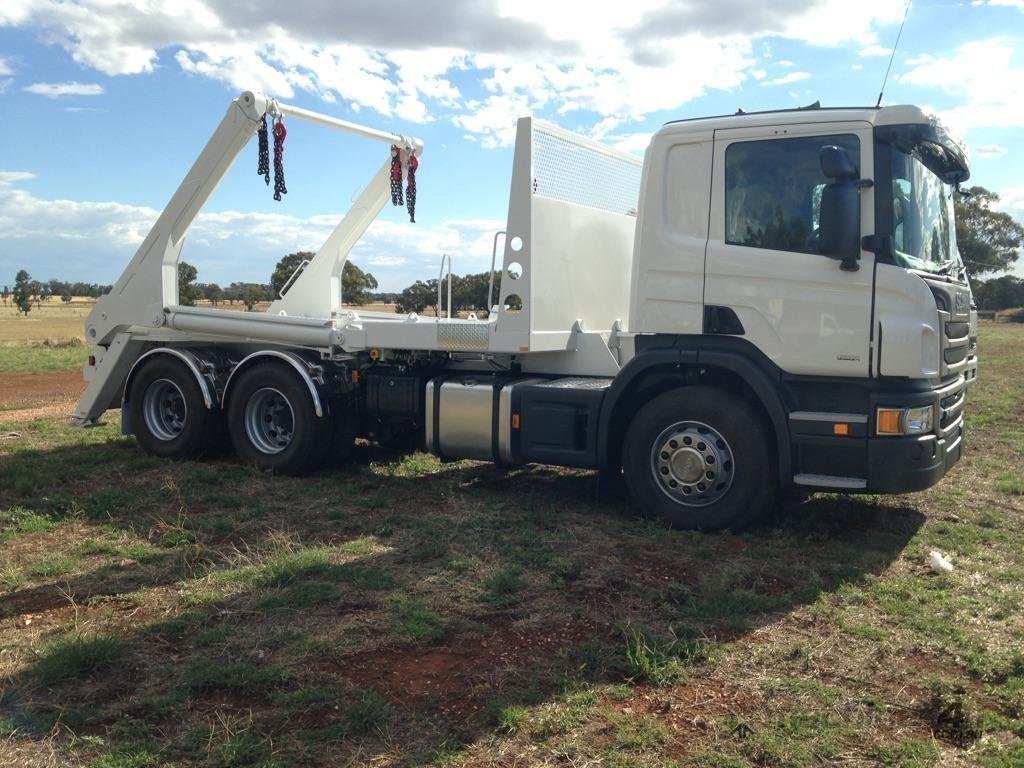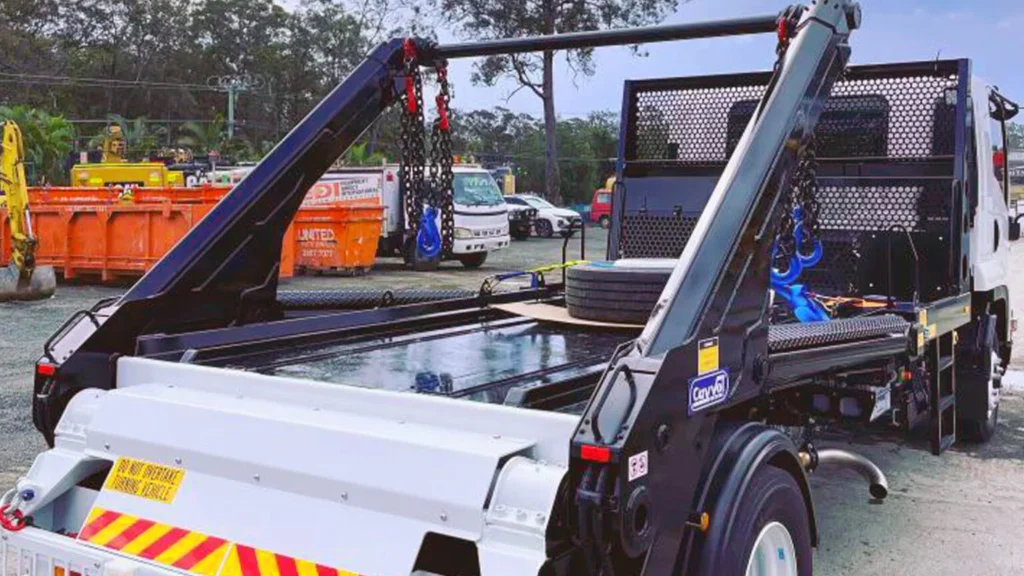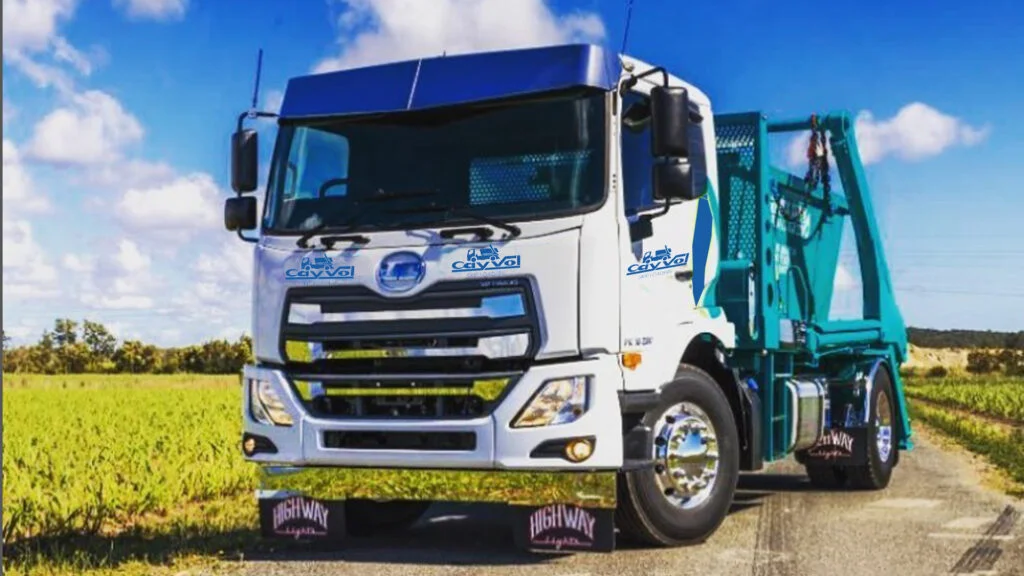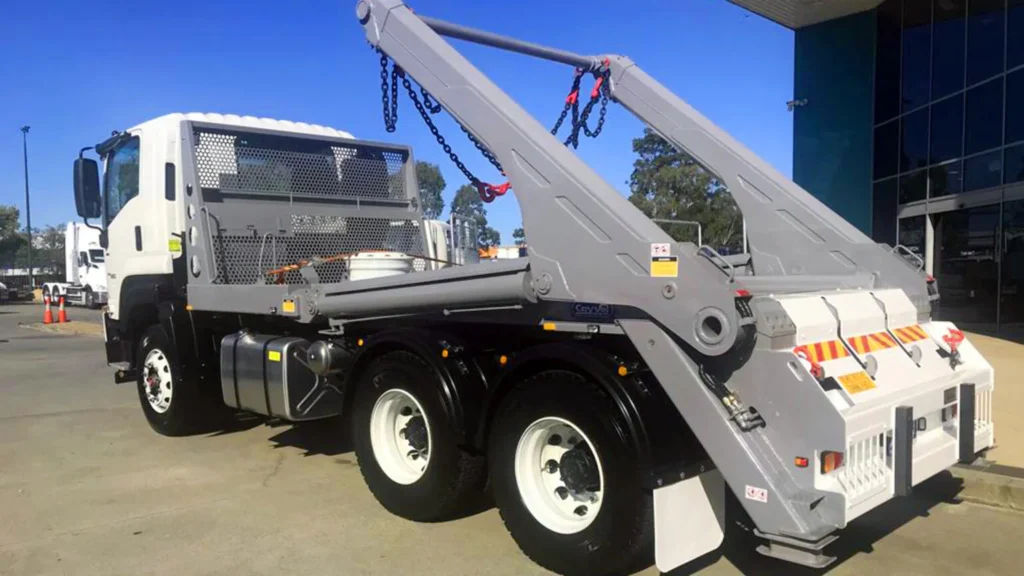Skip loaders, those versatile workhorses of the construction and waste management industries, can be incredibly efficient tools.
But their power and size demand respect. Ignoring safety protocols can lead to serious accidents, injuries, and even fatalities.
So, before you hop in the cab and raise the boom, make sure you’re equipped with these essential safety tips:

Pre-Operation Checks:
- Inspect the Skip Loader: Perform a thorough daily inspection, checking brakes, tyres, lights, hydraulics, and lifting equipment for any damage or leaks. Report any issues immediately.
- Know Your Limits: Understand the weight capacity and lifting range of your specific skip loader. Never exceed these limits to avoid overloading and instability.
- Dress for Success: Wear high-visibility clothing, sturdy boots with good grip, and appropriate safety gear like gloves and hard hats. Loose clothing and dangling jewellery are a no-go.
- Plan Your Route: Be aware of your surroundings, including pedestrians, overhead obstacles, and uneven terrain. Plan your route carefully and avoid sharp turns or sudden stops.

Operation:
- Secure the Skip: Ensure the skip is properly secured before lifting or lowering it. Use designated attachment points and double-check all chains and hooks for wear or damage.
- Maintain a Safe Distance: Keep bystanders at a safe distance from the operating area. Use cones or barriers if necessary to create a clear exclusion zone.
- Be Aware of Your Surroundings: Always be aware of your surroundings, including overhead power lines, obstacles, and other vehicles. Never operate the skip loader with your vision impaired.
- Mind the Slopes: Avoid operating on steep slopes or uneven terrain. If necessary, use outriggers or wheel chocks for added stability.
- Slow and Steady Wins the Race: Operate the skip loader smoothly and at moderate speeds. Avoid sudden movements that could cause instability or loss of control.
- Never Leave the Cab: Never leave the cab while the engine is running or the skip is raised. If you need to exit, park safely, engage the parking brake, and lower the skip completely.

Additional Safety Measures:
- Get Trained: Always operate skip loaders after receiving proper training and certification. Refresher courses are essential to stay updated on safety protocols.
- Fatigue Matters: Avoid operating the skip loader when fatigued or under the influence of drugs or alcohol. Take breaks regularly and stay hydrated.
- Communication is Key: Communicate clearly with other workers on the site, especially when lifting or lowering the skip. Use hand signals or radios if necessary.
- Report Hazards: Don’t hesitate to report any unsafe conditions or equipment malfunctions to your supervisor immediately.
Remember: Safety is not a suggestion, it’s a non-negotiable part of operating skip loaders.
By following these essential tips and prioritizing safety procedures, you can ensure a productive and accident-free work environment for yourself and everyone around you.
Bonus Tip: Consider sharing your safety tips or near-miss experiences in the comments below to create a community dialogue around skip loader safety!
